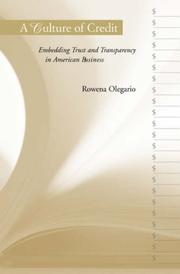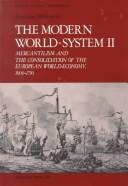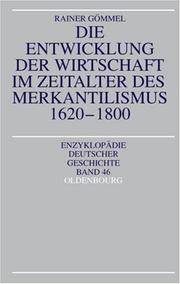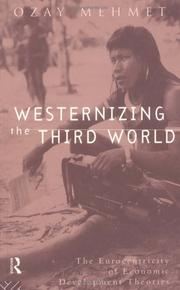| Listing 1 - 10 of 14 | << page >> |
Sort by
|
Book
ISBN: 9781783272280 1783272287 9781787440777 178744077X Year: 2017 Publisher: Suffolk Boydell & Brewer
Abstract | Keywords | Export | Availability | Bookmark
 Loading...
Loading...Choose an application
- Reference Manager
- EndNote
- RefWorks (Direct export to RefWorks)
This book discusses the impact of cameralism on the practices of governance, early modern state-building and economy in seventeenth- and eighteenth-century Europe. It argues that the cameralist conception of state and economy - a form of 'science' of government dedicated to reforming society while promoting economic development, and often associated mainly with Prussia - had significant impact far beyond Germany and Austria. In fact, its influence spread into Denmark, Sweden, Russia, Portugal, Northern Italy and other parts of Europe. In this volume, an international set of experts discusses administrative practices and policies in relation to population, forestry, proto-industry, trade, mining affairs, education, police regulation, and insurance. The book will appeal to early modernists, economic historians and historians of economic thought. MARTEN SEPPEL is Associate Professor of Early Modern History at the University of Tartu, Estonia. He holds an MPhil from the University of Cambridge. KEITH TRIBE has a PhD from the University of Cambridge and taught at the University of Keele (UK) from 1976 to 2002, retiring as Reader in Economics. He is now working as a highly regarded professional translator and independent scholar. Forthcoming work includes a new translation of Max Weber, Economy and Society Part One (Harvard University Press, 2018). His publications include Strategies of Economic Order (CUP, 1995/2007); The Economy of the Word. Language, History, and Economics (OUP, 2015); and (edited with Pat Hudson) The Contradictions of Capital in the Twenty-First Century (Agenda, 2016). Contributors: ROGER BARTLETT, ALEXANDRE MENDES CUNHA, HANS FRAMBACH, GUILLAUME GARNER, LARS MAGNUSSON, INGRID MARKUSSEN, FRANK OBERHOLZNER, GÖRAN RYDÉN, MARTEN SEPPEL, KEITH TRIBE, PAUL WARDE
Kameralistik. --- Mercantile system --- Mercantile system. --- Merkantilismus. --- Wirtschaft. --- History --- 1600-1799. --- Europa. --- Europe. --- Mercantilisme --- Cameralism --- Kameralism --- Mercantilism (Mercantile system) --- Balance of trade --- Economic policy --- capitalism. --- democray. --- economic development. --- economics. --- eighteenth century. --- european history. --- globalizations. --- government. --- industry. --- modernism. --- political science. --- seventeenth century.

ISBN: 0674041631 9780674041639 0674023404 Year: 2009 Publisher: Cambridge, MA
Abstract | Keywords | Export | Availability | Bookmark
 Loading...
Loading...Choose an application
- Reference Manager
- EndNote
- RefWorks (Direct export to RefWorks)
In the growing and dynamic economy of nineteenth-century America, businesses sold vast quantities of goods to one another, mostly on credit. This book explains how business people solved the problem of whom to trust--how they determined who was deserving of credit, and for how much. Rowena Olegario traces the way resistance, mutual suspicion, skepticism, and legal challenges were overcome in the relentless quest to make information on business borrowers more accurate and available.
Commercial credit --- Mercantile system --- Corporate image --- Company image --- Corporate identity --- Corporations --- Industrial design coordination --- Cameralism --- Kameralism --- Mercantilism (Mercantile system) --- Balance of trade --- Economic policy --- Business credit --- Credit --- History --- Public relations
Book
ISBN: 1852784660 Year: 1991 Volume: 4 Publisher: Aldershot Elgar
Abstract | Keywords | Export | Availability | Bookmark
 Loading...
Loading...Choose an application
- Reference Manager
- EndNote
- RefWorks (Direct export to RefWorks)
Economics --- Mercantile system --- Economie politique --- Mercantilisme --- History --- Histoire --- Malynes, Gerard de, --- Misselden, Edward, --- Mun, Thomas, --- AA / International- internationaal --- 08 --- 330.43 --- Biografieën en memoires. --- Mercantilisme en fysiocratie. --- Malynes, Gerard, --- Cameralism --- Kameralism --- Mercantilism (Mercantile system) --- Balance of trade --- Economic policy --- Biografieën en memoires --- Mercantilisme en fysiocratie --- Meng, Tuomasi, --- Mun, Tho. --- De Malines, Gerard, --- Malines, Gerard, --- Malynes, Gerrard de,
Book
ISBN: 1852784679 Year: 1991 Volume: 5 Publisher: Aldershot Elgar
Abstract | Keywords | Export | Availability | Bookmark
 Loading...
Loading...Choose an application
- Reference Manager
- EndNote
- RefWorks (Direct export to RefWorks)
Economics --- Mercantile system --- Economie politique --- Mercantilisme --- History --- Histoire --- Child, Josiah, Sir, --- Locke, John, --- AA / International- internationaal --- 08 --- 330.43 --- Biografieën en memoires. --- Mercantilisme en fysiocratie. --- Cameralism --- Kameralism --- Mercantilism (Mercantile system) --- Balance of trade --- Economic policy --- Biografieën en memoires --- Mercantilisme en fysiocratie --- Locke, John --- Philanthropus, --- Lokk, Dzhon, --- Lūk, Jūn, --- Lo-kʻo, --- Locke, Giovanni, --- Lock, --- Lock, John, --- Rokku, Jon, --- לוק, י׳ון,
Book
ISBN: 0745000444 9780745000442 Year: 1986 Publisher: Brighton: Harvester press,
Abstract | Keywords | Export | Availability | Bookmark
 Loading...
Loading...Choose an application
- Reference Manager
- EndNote
- RefWorks (Direct export to RefWorks)
Mercantile system --- Economic policy --- 338.22 --- 338 <09> --- Economic nationalism --- Economic planning --- National planning --- State planning --- Economics --- Planning --- National security --- Social policy --- Cameralism --- Kameralism --- Mercantilism --- Balance of trade --- Economische organisatieleer. Economisch beleid. Economische politiek --- Economische geschiedenis --- Mercantile system. --- Mercantilism (Mercantile system) --- 338 <09> Economische geschiedenis --- 338.22 Economische organisatieleer. Economisch beleid. Economische politiek

ISBN: 0127859241 0127859233 Year: 1980 Volume: 2 Publisher: New York (N.Y.) Academic Press
Abstract | Keywords | Export | Availability | Bookmark
 Loading...
Loading...Choose an application
- Reference Manager
- EndNote
- RefWorks (Direct export to RefWorks)
Mercantile system --- History. --- Europe --- Economic conditions --- Economic history --- -Mercantile system --- -#SBIB:93H2 --- AA / International- internationaal --- 331.100 --- Cameralism --- Kameralism --- Mercantilism --- Balance of trade --- Economic policy --- History, Economic --- Economics --- 1600-1750 --- History --- Algemene geschiedenis, wereldgeschiedenis --- Economische geschiedenis: algemeenheden. --- Council of Europe countries --- Eastern Hemisphere --- Eurasia --- -Economic conditions --- -Economic history --- #SBIB:93H2 --- Mercantilism (Mercantile system) --- Economische geschiedenis: algemeenheden

ISBN: 3486702122 3486702068 3486557572 3486557580 3486581694 9783486702064 Year: 2011 Publisher: München De Gruyter
Abstract | Keywords | Export | Availability | Bookmark
 Loading...
Loading...Choose an application
- Reference Manager
- EndNote
- RefWorks (Direct export to RefWorks)
Joachim von Puttkamer führt die Geschichte(n) Ungarns, Polens, Tschechiens und der Slowakei zusammen und überwindet so die nationalen Perspektiven. Der Band gibt eine kompakte Einführung in die Grundlinien der ostmitteleuropäischen Geschichte seit dem späten 18. Jahrhundert. In der bewährten Dreiteilung der Reihe diskutiert von Puttkamer zentrale Forschungsprobleme von Staat und Politik, Wirtschaft und Gesellschaft, Nation und Erinnerungskultur in einer hochkomplexen Region und bietet Einblicke in aktuelle historische Kontroversen unserer östlichen Nachbarn. Die vergleichende Zusammenschau der polnischen, tschechischen, slowakischen und ungarischen Geschichte erschließt Konvergenzen und Divergenzen der ostmitteleuropäischen Adelsgesellschaften in ihrer Entwicklung zu den Demokratien der Gegenwart. "Eine rundum gelungene, auf die Grundstrukturen einer komplexen Geschichtsregion konzentrierte Darstellung." Prof. Dr. Eduard Mühle, Deutsches Historisches Institut Warschau
Regions & Countries - Europe --- History & Archaeology --- Eastern Europe --- Europe, Eastern --- Europe, Central --- History --- Central Europe --- East Europe --- Economics --- Mercantile system --- Lehrbuch. --- Osteuropäische Geschichte. --- Ostmitteleuropa. --- Studienbuch. --- HISTORY / General. --- Germany --- Economic conditions. --- Economic policy. --- History. --- Cameralism --- Kameralism --- Mercantilism (Mercantile system) --- Balance of trade --- Economic policy
Book
ISBN: 0674915488 9780674915480 9780674051140 0674051149 Year: 2016 Publisher: Cambridge, Massachusetts
Abstract | Keywords | Export | Availability | Bookmark
 Loading...
Loading...Choose an application
- Reference Manager
- EndNote
- RefWorks (Direct export to RefWorks)
Tracing credit from colonial times to the present and highlighting its productive role in building national prosperity, Rowena Olegario probes questions that have divided Americans: Who should have access to credit? How should creditors assess creditworthiness? How can borrowers and lenders accommodate to the risks of a credit-dependent economy?
Commercial credit --- Mercantile system --- Finance --- Economic development --- Development, Economic --- Economic growth --- Growth, Economic --- Economic policy --- Economics --- Statics and dynamics (Social sciences) --- Development economics --- Resource curse --- Cameralism --- Kameralism --- Mercantilism (Mercantile system) --- Balance of trade --- Business credit --- Credit --- History. --- United States --- Economic conditions. --- History --- E-books

ISBN: 0415118298 041511828X Year: 1995 Publisher: London Routledge
Abstract | Keywords | Export | Availability | Bookmark
 Loading...
Loading...Choose an application
- Reference Manager
- EndNote
- RefWorks (Direct export to RefWorks)
Économie sociale et solidaire --- Ethnocentrism. --- Mercantile system. --- Economic development --- Ethnocentrism --- Mercantile system --- 202 --- 338.340 --- AA / International- internationaal --- Cameralism --- Kameralism --- Mercantilism (Mercantile system) --- Balance of trade --- Economic policy --- Cultural relativism --- Ethnopsychology --- Nationalism --- Prejudices --- Race --- Development, Economic --- Economic growth --- Growth, Economic --- Economics --- Statics and dynamics (Social sciences) --- Development economics --- Resource curse --- Sociale organisatie --- Algemene ontwikkeling in de Derde Wereld --- Economic schools --- Third World: economic development problems --- Economic development. --- Aide économique --- Économie sociale et solidaire. --- Developing countries: economic development problems
Book
ISBN: 0520385225 0520385217 9780520385221 9780520385214 Year: 2022 Publisher: University of California Press
Abstract | Keywords | Export | Availability | Bookmark
 Loading...
Loading...Choose an application
- Reference Manager
- EndNote
- RefWorks (Direct export to RefWorks)
"Huizhou studies the construction of local identity through kinship in Huizhou prefecture, the most prominent merchant stronghold of Ming China. Making use of an array of untapped genealogies and other sources, Qitao Guo explores how developments in the sociocultural, religious, and gender realms in the fifteenth to sixteenth centuries intertwined to shape Huizhou identity as a land of "prominent lineages." This gentrified self-image both sheltered and guided the development of mercantile lineages, which were further bolstered by the gender regime and the local religious order. As Guo demonstrates, the discrepancy between representation and practice helps explain Huizhou's triumphs. The more active the economy became, the more those central to its commercialization embraced conservative sociocultural norms. Home lineages embraced neo-Confucian orthodoxy even as they provided the financial and logistical support to assure the success of Huizhou merchants. The end result was not "capitalism" but gentrified mercantile lineage culture with Chinese-or Huizhou-characteristics"-- Provided by publisher.
Kinship --- Mercantile system --- Merchants --- HISTORY / Asia / China. --- History. --- Businesspeople --- Commerce --- Cameralism --- Kameralism --- Mercantilism (Mercantile system) --- Balance of trade --- Economic policy --- Ethnology --- Clans --- Consanguinity --- Families --- Kin recognition --- She Xian (Anhui Sheng, China) --- China --- Social conditions --- History --- She-hsien (Anhui Sheng, China) --- Shexian (Anhui Sheng, China) --- Hsi-hsien (Anhui Sheng, China) --- Sihsien (Anhui Sheng, China) --- Sisen (Anhui Sheng, China) --- She-hsien, China --- Huizhou Fu (Anhui Sheng, China) --- Mercantile system.
| Listing 1 - 10 of 14 | << page >> |
Sort by
|

 Search
Search Feedback
Feedback About UniCat
About UniCat  Help
Help News
News